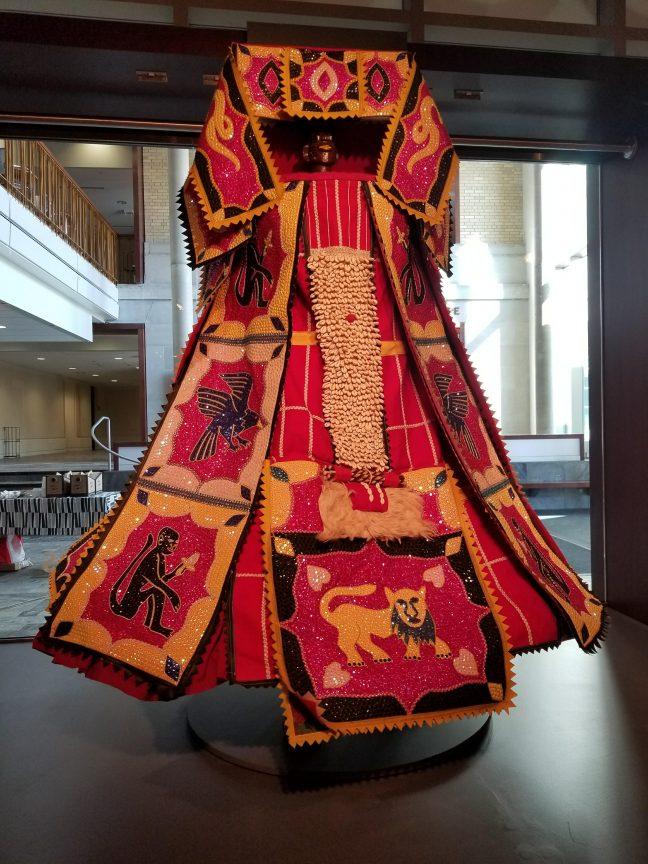The art exhibition “Whirling Return of the Ancestors: Egúngún Arts of the Yorùbá in Africa and Beyond” explores the sights and sounds of ancestral Yorùbá practices meant to honor the dead.
Sixteen doctoral students in University of Wisconsin professor Henry Drewal’s art history curatorial exhibition practice fall course put together the collection.
The exhibit features wooden sculptures, textile pieces that form traditional Egúngún attire, exquisite paintings and even an interactive work of art. Displayed in the back of the gallery is a documentary of Egúngún festivals, from which audience members are able to grasp the experience of such a massive Yorùbá party.
Exhibitions like this often take years of work to create, yet Drewal tasked his students with putting together the exhibit in fifteen weeks and they successfully proved to be up for the challenge. Each student wrote a 10-page research paper on one of the pieces, yet only one or two of the students had prior knowledge of Yorùbá culture — so they all learned quite a bit of new information.
“When I graduated from college I didn’t know what I wanted to do, so I joined the Peace Corps,” Drewal said. “I didn’t know much about Nigeria or Africa, but I was there to teach French and English in a secondary school.”
Drewal teaches in the departments of art history and Afro-American studies, and has a particular interest in West African cultures and the African diaspora.
His students began to teach him Yorùbá, and as he became more immersed in the culture he began to know his community and ultimately took on an apprenticeship that changed his life.
“I had to change where I was in the world by thinking about a different culture,” Drewal said. “And I decided to continue studying African arts and history for the rest of my life.”
Drewal commissioned a professional filmmaker for parts of the documentary recorded in Porto-Novo, Benin and filmed the rest with the collaboration of former student Bolaji Campbell and film student Aaron Granite, who were invited to Oyotunji — a Yorùbá village in South Carolina formed during the 1970s. Drewal has been to several Egúngún festivals, including a smaller version of the one depicted in the documentary in Porto-Novo.
Drewal said people need to know about the richness and the diversity of arts, cultural and philosophical traditions on the African continent.
“Every culture has a way of honoring it’s departed — this exhibit is a way of unifying us as human beings,” Drewal said. “We can all make sense of and understand this exhibition when we start thinking about our own traditions.”
The exhibit is on display at the Ruth Davis Design Gallery in Nancy Nicholas Hall until April 8. The gallery is free and open to the public each week Wednesday and Friday from 10 a.m. to 4 p.m., Thursday from 10 a.m. to 7 p.m. and Saturday and Sunday noon to 4 p.m.

Before the exhibit closes, there will be a two-day symposium, “Honoring Ancestors in Africa: Arts and Actions,” on April 6 to 7 in which Oyotunji villagers will perform drumming and dancing that occurs at Egúngún masquerades. The weekend will conclude with a dance party at the Sett on Saturday evening at 9 p.m.
“We have a lot to learn from Africa,” Drewal said.


